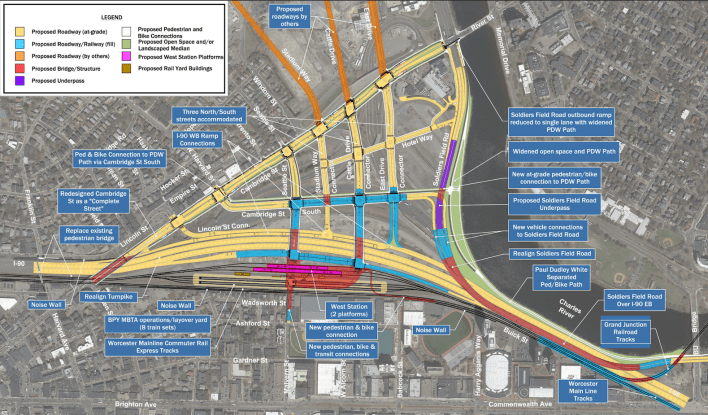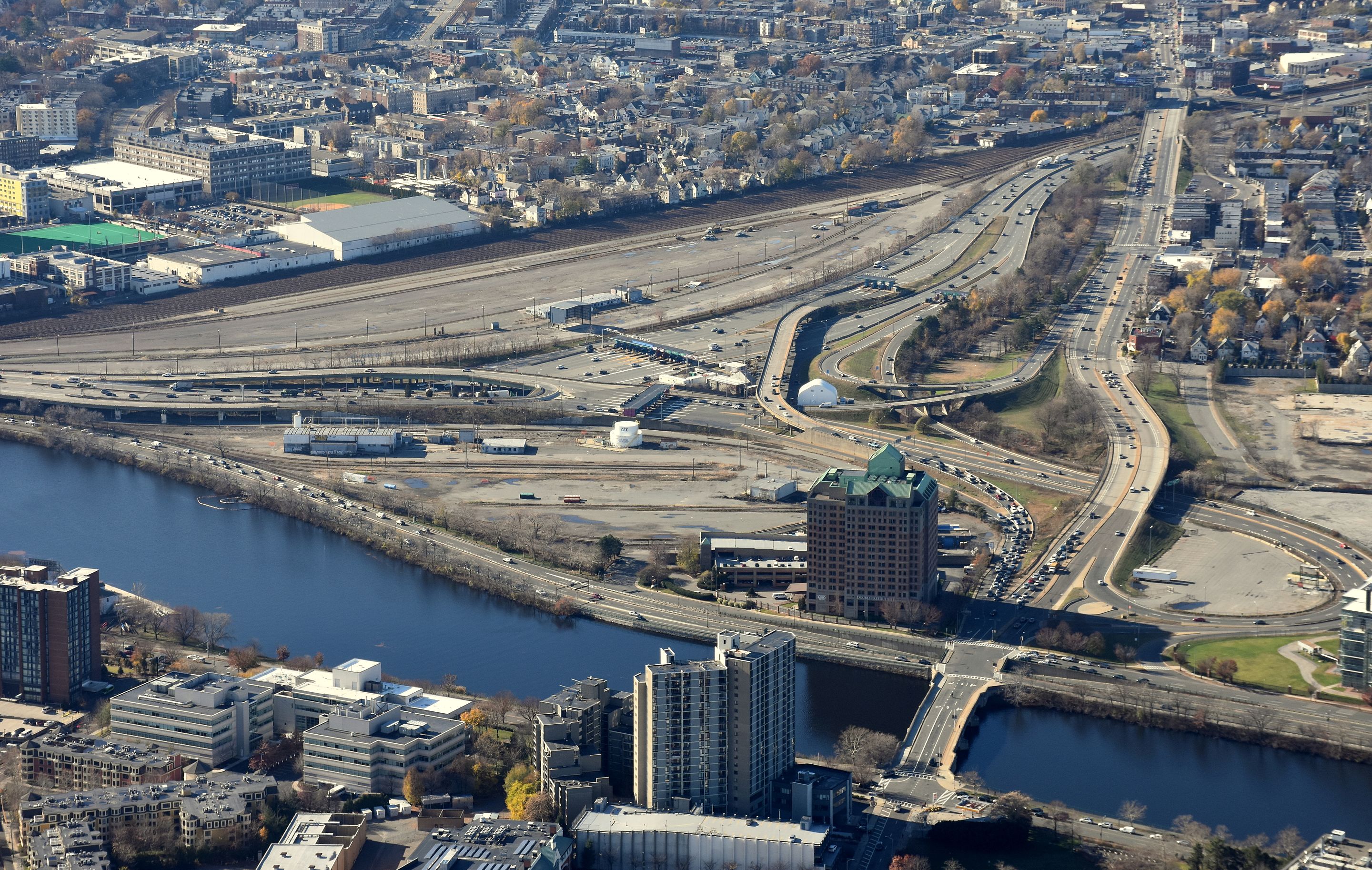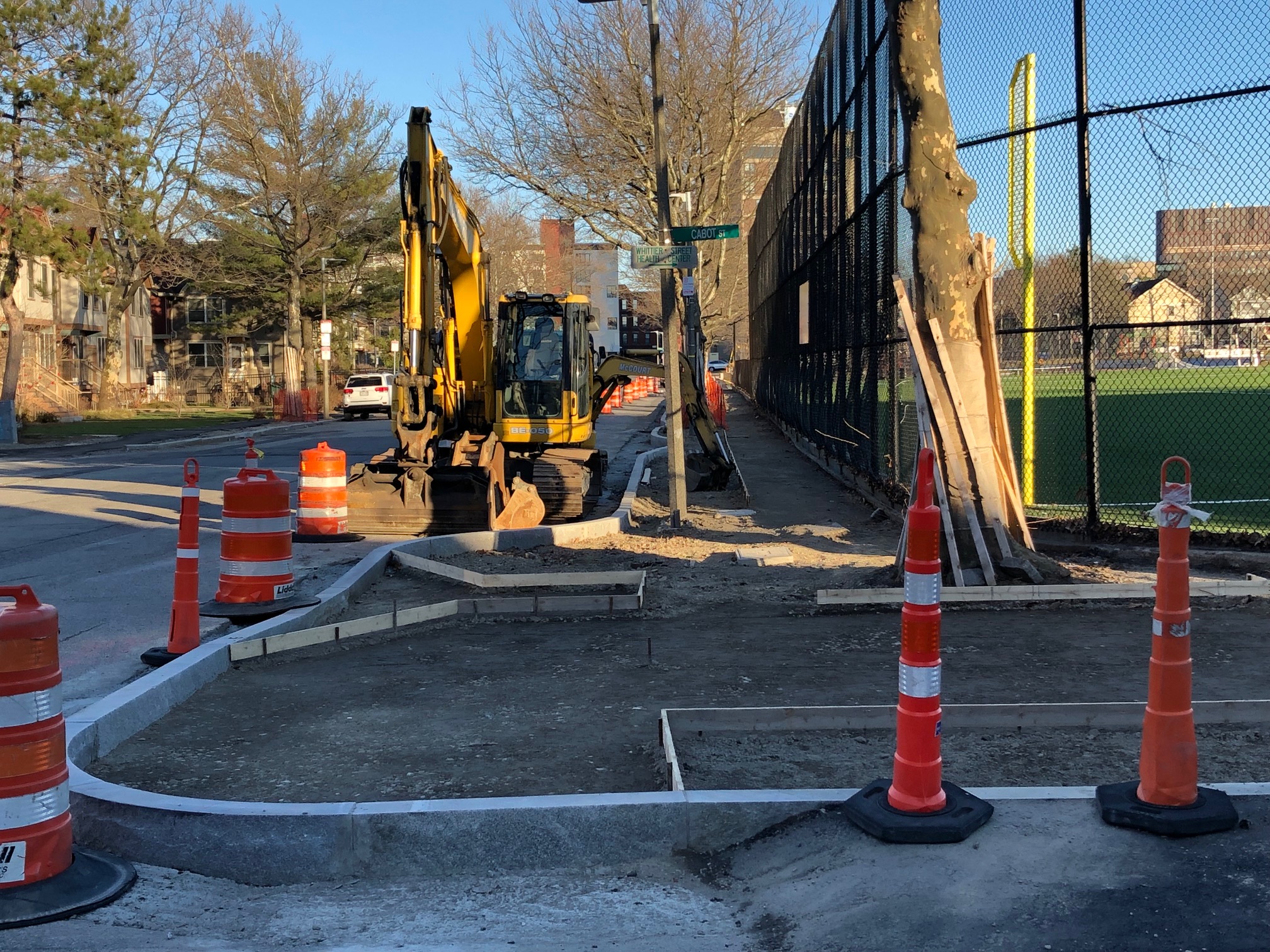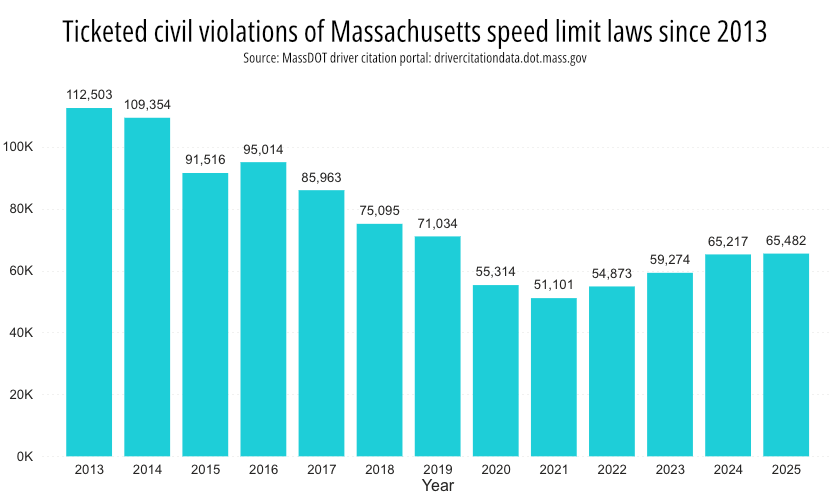MassDOT and the Federal Highway Administration have officially kicked of the two-year environmental review process for the Allston Multimodal Project - a reconfiguration of Interstate 90, Soldiers Field Road and the Framingham/Worcester railroad line along the Charles River waterfront in Allston - with the release of a "scoping report" that outlines how the project will be analyzed under the federal National Environmental Policy Act.
The scoping report, released on Wednesday, defines the project's purpose and need, and outlines various alternatives that analysts will evaluate to measure and compare their environmental impacts.
In an email message on Thursday, Staci Rubin, Senior Attorney at the Conservation Law Foundation, describes the scoping report as "a critical step that will affect the scope of future environmental filings" and that "also serves as the basis for the federal and state agency coordination."
Related:
A rough guide to the Allston Multimodal Project
The report recognizes the need to improve access for transit, buses, bikes, and pedestrians in Allston: the "purpose and need" sections describe "a lack of multimodal connections on the (Worcester Line) and other existing transit modes in the area, while short- and long-term ridership is increasing" and discusses how, "with growth and development expected in the Allston area, multimodal access should be improved."
The scoping document also outlines two alternatives that regulators will evaluate in a detailed environmental impact study: a "no-build" option that preserves the status quo (as required under National Environmental Policy Act rules), and this design, which MassDOT has been discussing for much of the past year (and described in greater detail in our "Rough Guide to the Allston/I-90 Megaproject"):

It's worth noting, however, that many federal environmental impact statements evaluate more than two alternatives; one way that advocates can influence the process is by suggesting additional project alternatives that meet the project's purpose and need statements, or by suggesting modifications to existing alternatives.
One alternative that MassDOT may need to consider will be one that includes the MBTA's recently-approved plan to transform the commuter rail system to run rapid-transit-style service to Worcester. Another possible alternative might embody local plans from Boston and Cambridge to reduce dramatically the amount of vehicular traffic using the Massachusetts Turnpike.
Advocacy groups and members of the public can weigh in with comments on the scoping report, including alternative ideas for the project, for a 30-day comment period that ends on December 12.
In the meantime, MassDOT will host an informational meeting on the scoping report tonight at 6:30 p.m. at Brighton High School, 25 Warren Street, Boston.
Another public meeting will be held on Wednesday, December 4, at 6:30 p.m. at Dunning Elementary School in Framingham.
Read the full scoping report released on November 6, 2019.
Upcoming meetings:
- Scoping report informational meeting: Thursday, November 7, 6:30 p.m.-8:30 p.m., Brighton High School, 25 Warren Street, Boston
- Allston Multimodal Project Task Force: Wednesday, November 13, 2:00 p.m.-6:00 p.m., Fiorentino Center, 123 Antwerp Street, Boston
- Allston Multimodal Project Public Meeting: Wednesday, December 4, 6:30 p.m.-8:30 p.m., Dunning Elementary School, 48 Frost Street, Framingham
- Allston Multimodal Project Task Force, Wednesday, December 11, 6:00 p.m.-8:00 p.m., Fiorentino Center, 123 Antwerp Street, Boston






